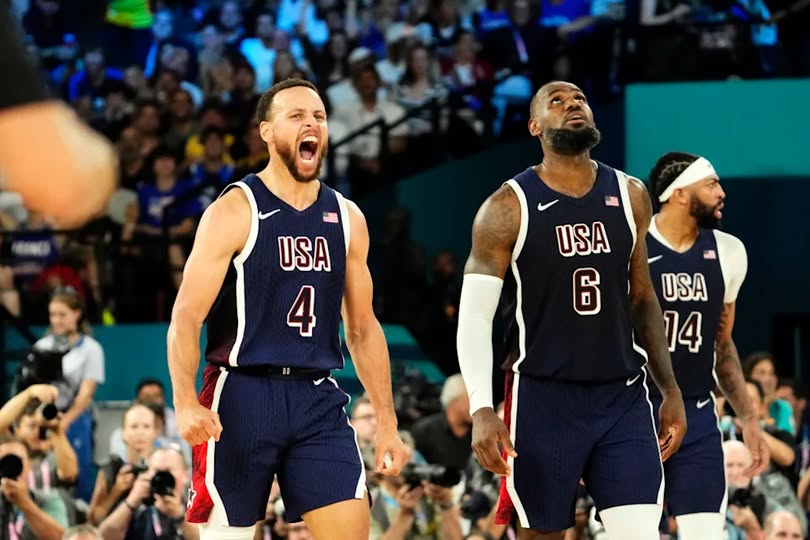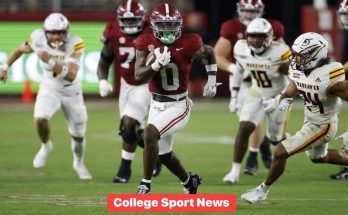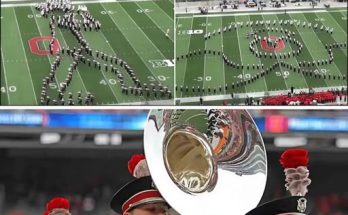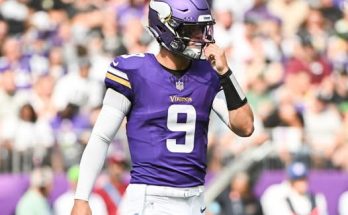In the constantly shifting landscape of the NBA, where dynasties are built and dismantled in the span of a few seasons, few rivalries have captivated fans quite like the one between Stephen Curry and LeBron James. From epic Finals battles to personal accolades, these two generational talents have defined the last decade of professional basketball. Now, with murmurs swirling around a potential blockbuster trade involving the Golden State Warriors and Los Angeles Lakers, Steph Curry has broken his silence in a way that speaks volumes—not just about the rumors, but about the legacy he and LeBron have built and the future they may be forced to confront.
Curry’s message came at a time when social media was aflame with speculation. Reports suggested that the Warriors front office had internally discussed a scenario that could send Klay Thompson and Jonathan Kuminga to the Lakers in exchange for Anthony Davis, or even a more radical proposal involving LeBron James himself. While nothing was confirmed, the very idea that the league’s two most decorated stars of the modern era might share a jersey instead of trading daggers on the court was enough to throw fans into a frenzy.
Steph, who has built his entire career on loyalty to the Bay Area and a commitment to the Warriors’ ethos of selfless, high-IQ basketball, has always been strategic in what he says and when he says it. So when he finally spoke out during a podcast appearance—casual in tone but unmistakably clear in intent—his words carried a deeper weight than perhaps any tweet or press release could. “Look, I got nothing but respect for Bron. We’ve been to war too many times not to. But some things, man, just gotta stay the way they are. I’m not chasing fairy tales. I’m chasing what we built.”
In those few sentences, Curry made more than a passing statement—he made a declaration. It wasn’t a rejection of LeBron James the player, the teammate, or the man. It was a reaffirmation of identity. The Warriors’ identity. His identity. And that subtle but unmistakable assertion revealed that Curry sees the growing chatter for what it is: noise, distraction, and perhaps even a misguided nostalgia trying to write its own Hollywood ending.
Steph and LeBron have never played on the same team. In fact, their careers have been bookended by mutual triumphs and heartbreaks at each other’s hands. The 2015–2018 stretch where Golden State and Cleveland met in four straight Finals was not just historic—it was personal. Steph’s revolution of the three-point era was constantly held up against LeBron’s traditional dominance, and the result was a dramatic juxtaposition between old-school physicality and new-age finesse. Though their individual greatness was never questioned, their paths to success often highlighted different values, approaches, and even philosophies on how the game should be played.
So for Curry to suggest that pairing up with LeBron might betray the foundation he helped build is not just a nod to loyalty—it’s a defense of culture. Golden State’s culture, under Steve Kerr and guided by Curry’s humility and discipline, has never been built around star-chasing. They don’t recruit stars to cover up weaknesses; they develop within, draft shrewdly, and emphasize chemistry over flash. Even when Kevin Durant joined the team in 2016, it was seen as a strategic evolution rather than a celebrity fusion. Durant fit into a system; he didn’t override it. With LeBron, the system always bends to him. And perhaps that’s why Steph’s message seemed not only strong, but quietly defiant.
Yet even with the sharp tone of his response, there’s an undercurrent of deep admiration between the two. Curry was quick to clarify that his statement wasn’t born out of ego or resentment. “If there’s ever been a guy who’s earned the right to write his own story, it’s Bron. But this chapter? I think we’re writing different books.” In many ways, Curry understands that the trade speculation isn’t about personal drama—it’s about legacy, leverage, and the hunger for one last shot at glory.
LeBron James, now entering what could be the final stretch of his legendary career, is no stranger to seismic shifts. From Cleveland to Miami and back, then to Los Angeles, LeBron has never hesitated to make bold moves when he believes it’s time. But with the Lakers coming off a disappointing playoff exit and his supporting cast underperforming, the whispers of relocation or a new super-team partnership have begun to swirl again. And Golden State, with its deep basketball IQ, experienced core, and championship pedigree, presents a tantalizing opportunity.
But Curry doesn’t see the game in those terms. He’s a builder, not a wanderer. Even in the face of recent struggles, declining team performance, and the departure of longtime teammate Klay Thompson to Dallas, Curry has chosen to stay the course. And this choice speaks not to stubbornness, but to principle. He sees his relationship with Golden State as sacred—a commitment forged through loyalty, adversity, and a belief that winning means more when you do it your way.
His message to LeBron, then, is not a closed door. It’s a reminder. A reminder that not every partnership is meant to happen. That sometimes, the most respectful thing two competitors can do is continue to battle separately, not align. That legacy isn’t just measured in rings, but in the consistency of purpose and the courage to say “no” to easy exits.
Still, the very fact that these conversations are happening is a reflection of the desperation both franchises face. The Warriors, despite Curry’s brilliance, have aged. Draymond Green is no longer the defensive engine he once was. The bench lacks punch. And with Klay now gone, Curry finds himself surrounded by uncertainty for the first time in nearly a decade. Meanwhile, the Lakers are trying to squeeze one more championship window out of a fragile core. The temptation to merge these two dynasties into one final superteam may be too appealing for front offices to resist.
But Steph Curry has never been about convenient alliances. His greatness has always stemmed from making the difficult look easy—shooting from thirty-five feet, leading without demanding, thriving without chasing drama. His response to the rumors wasn’t loud, but it was powerful. It was the statement of a man who knows exactly who he is, and what he wants his final chapters to say.
There’s also a deep philosophical divergence between the two stars when it comes to control. LeBron is the ultimate player-general manager, sculpting his rosters and commanding front office influence like few athletes ever have. Curry, on the other hand, defers to the structure. He trusts Bob Myers and Mike Dunleavy Jr. (and previously Joe Lacob’s vision) to handle the team’s trajectory. He leads from within—not from above. And this subtle difference is perhaps the most unbridgeable gap between them. To merge their worlds would require one to yield, and neither man has spent two decades becoming legends by compromising their DNA.
In the end, Curry’s message wasn’t just for LeBron. It was for fans, analysts, teammates, and the league at large. It was a call to appreciate the journey, not manufacture fairy tales. It was a reminder that rivalry is not a flaw, but a feature of greatness. And most importantly, it was a declaration that while the NBA may be obsessed with narratives of unification, sometimes the truest form of respect is remaining apart.
There’s no telling what the next few weeks will bring. Free agency is a volatile time, and in the modern NBA, no scenario is truly off the table. But if Steph Curry has his way, the rumors will remain just that—rumors. Because some things, as he said, just need to stay the way they are. And for all the talk of superteams and final runs, perhaps the greatest tribute these two legends can pay each other is to keep competing—not colluding.
In a league obsessed with “what ifs,” Steph Curry just gave the basketball world a rare and refreshing “what is.” And in doing so, he reminded everyone that sometimes, the strongest message isn’t a shout, but a quiet refusal to change course.



